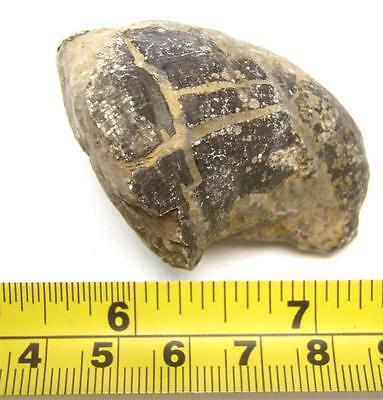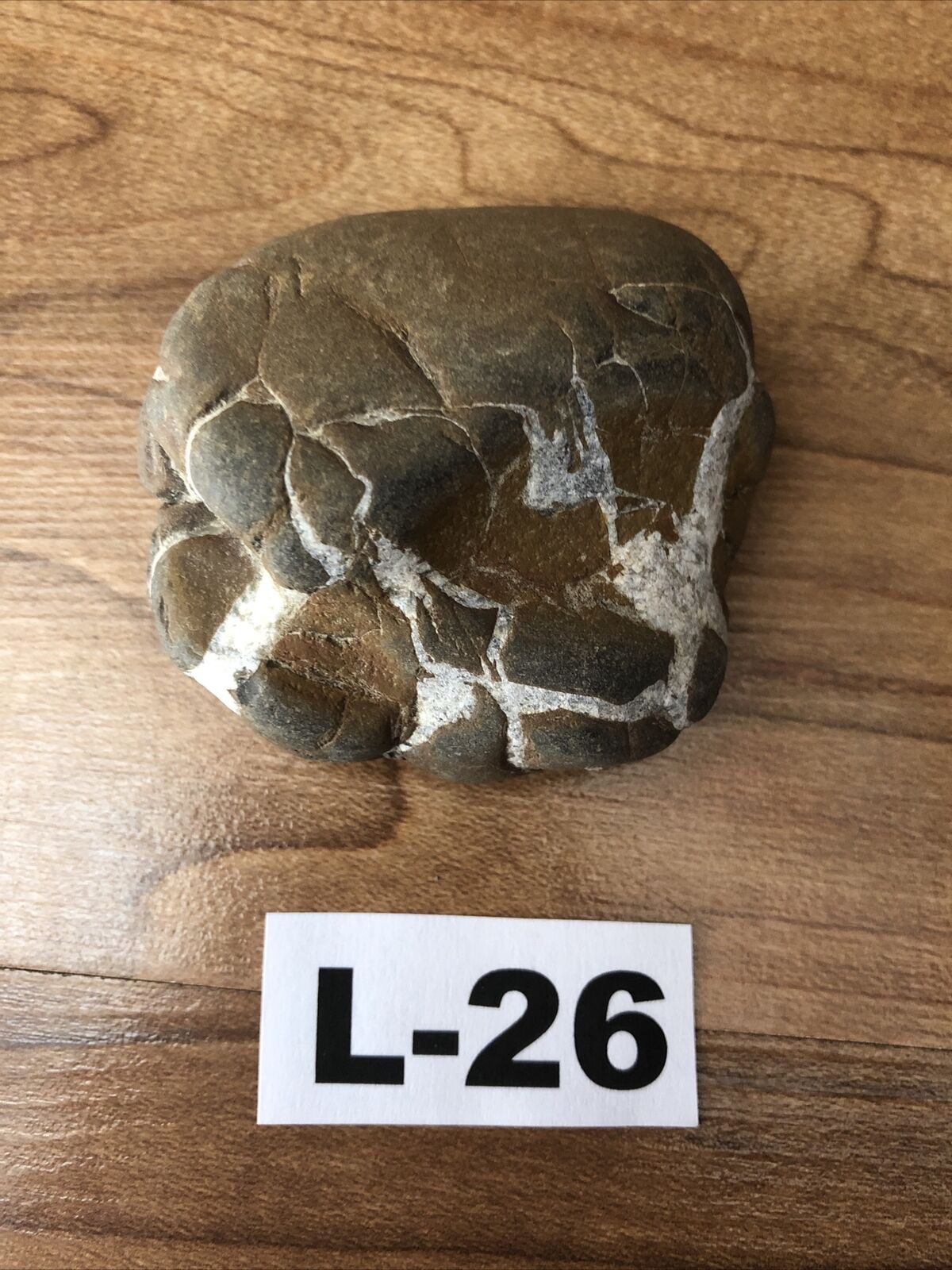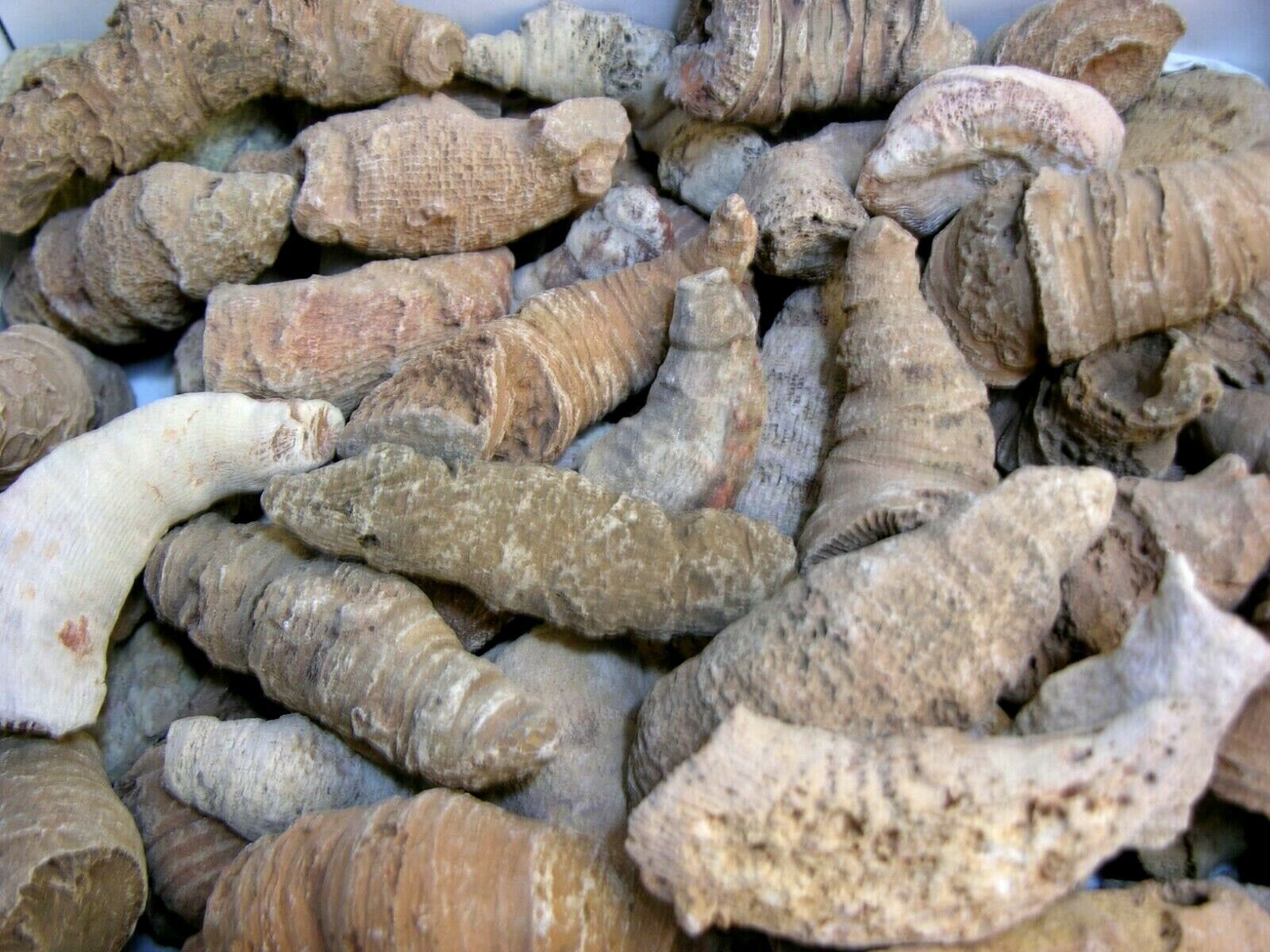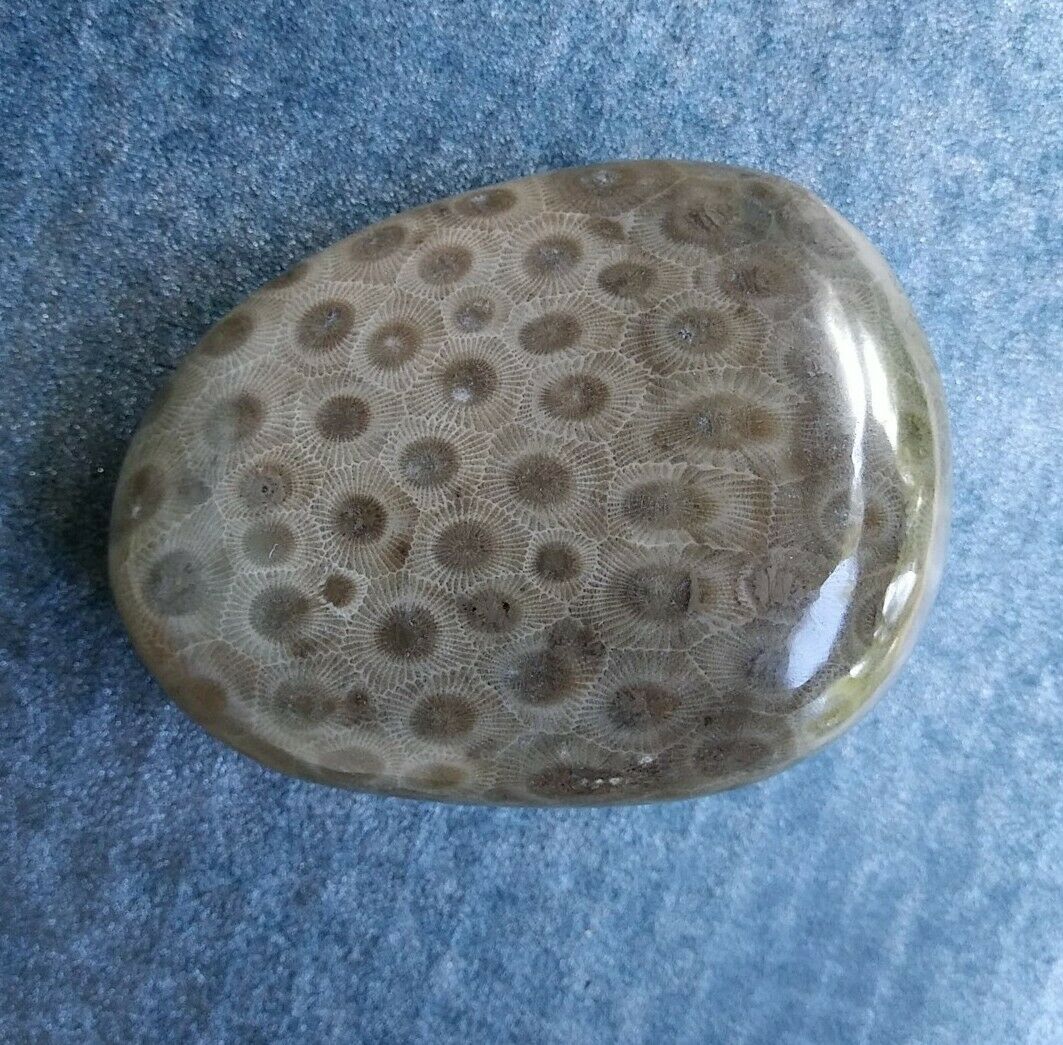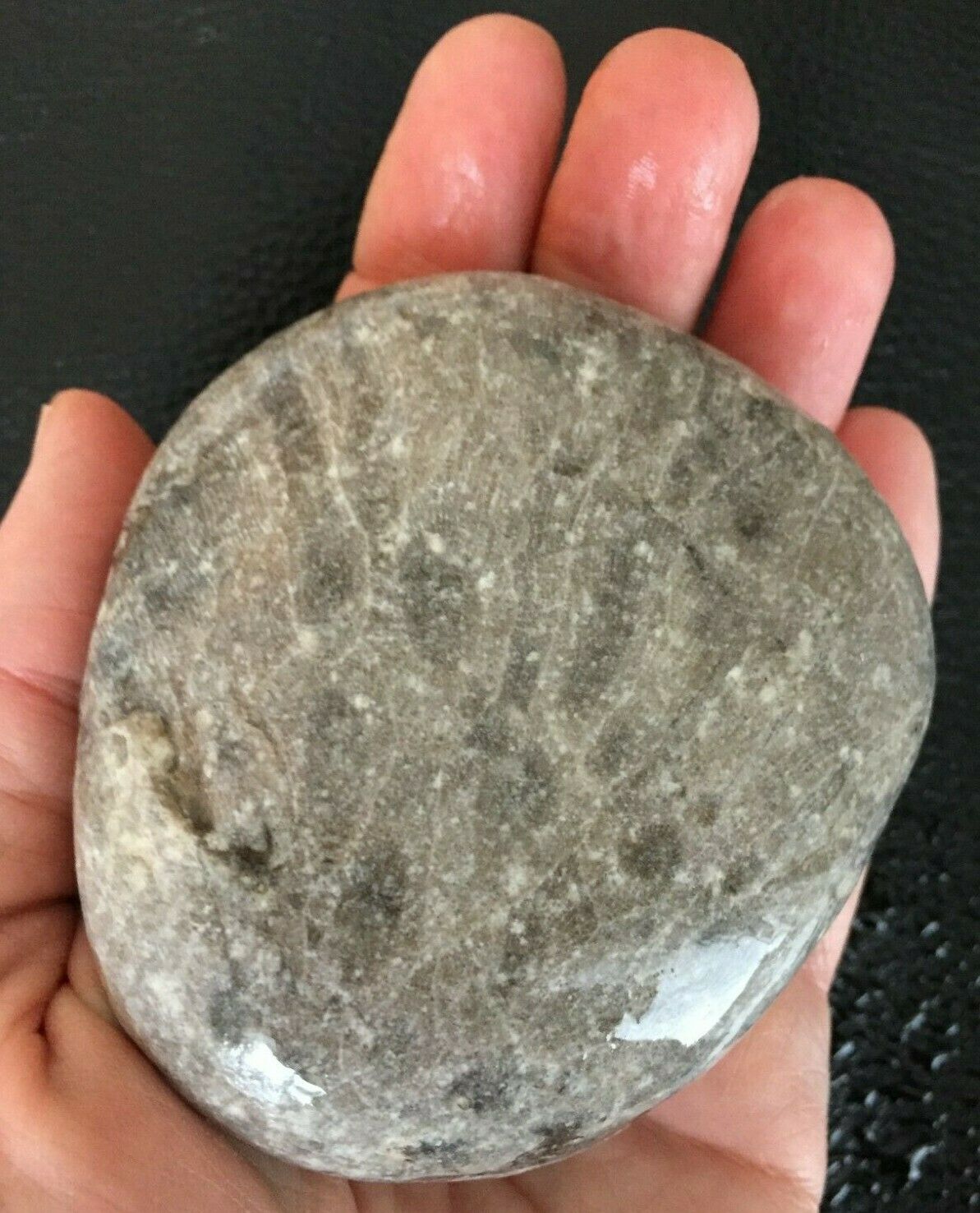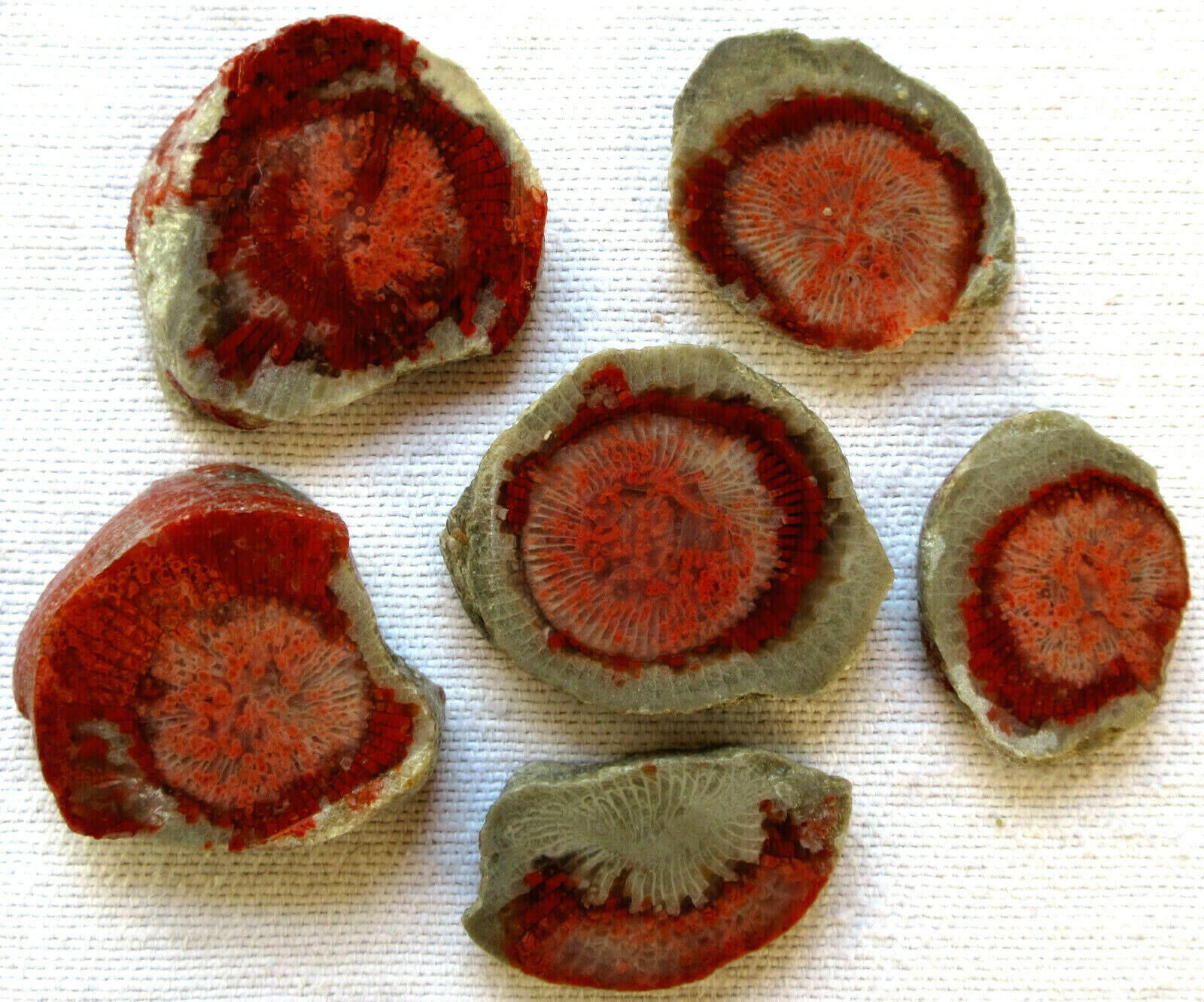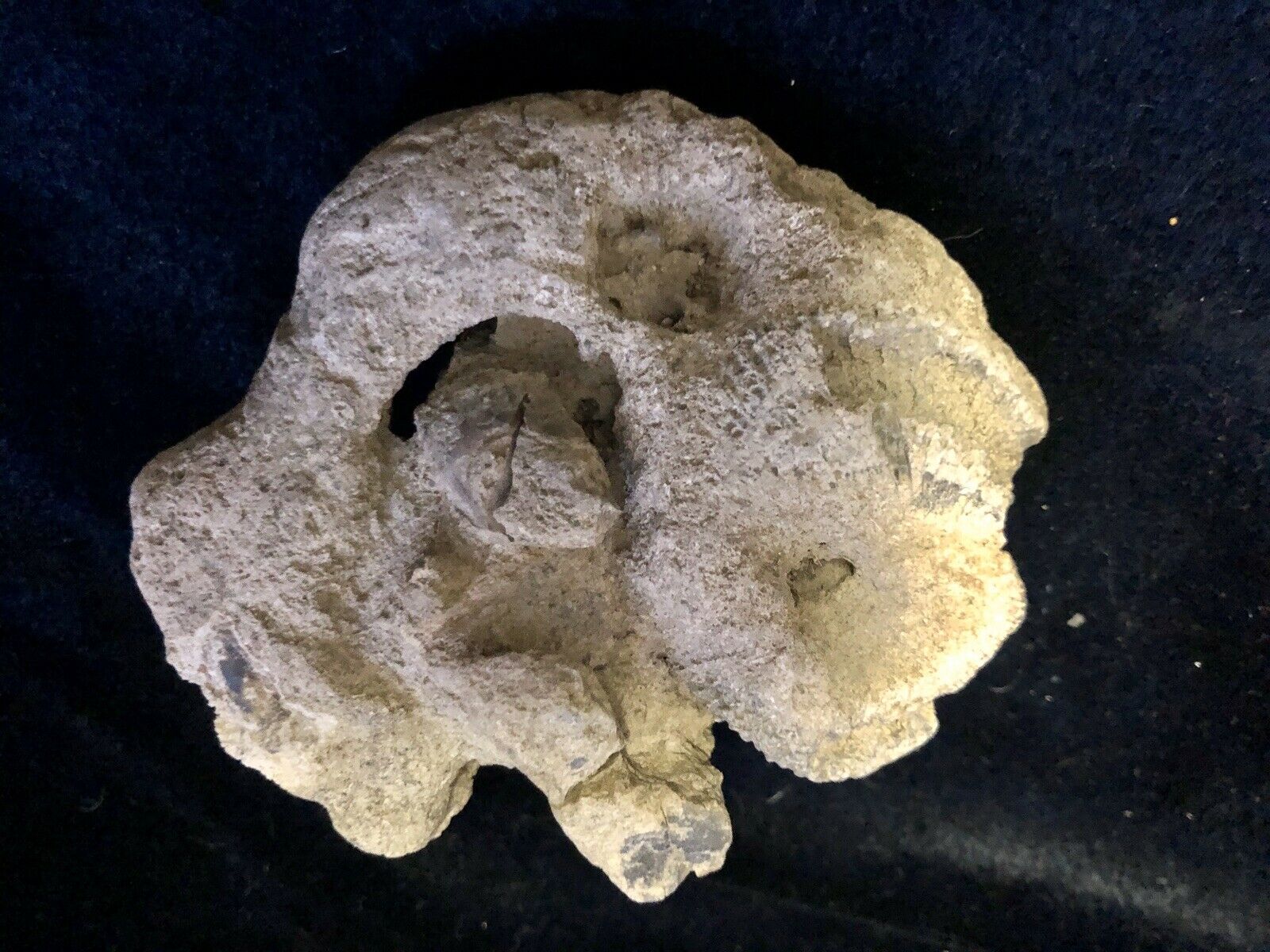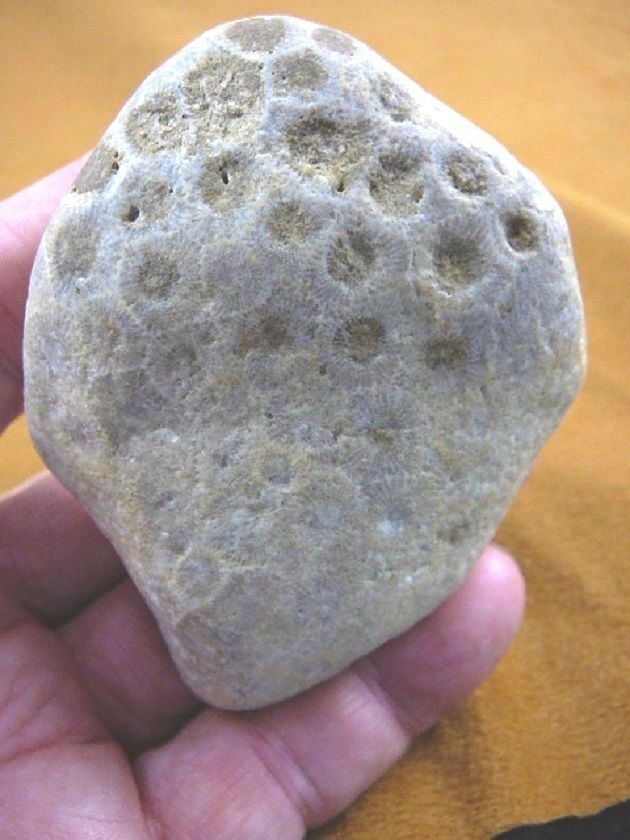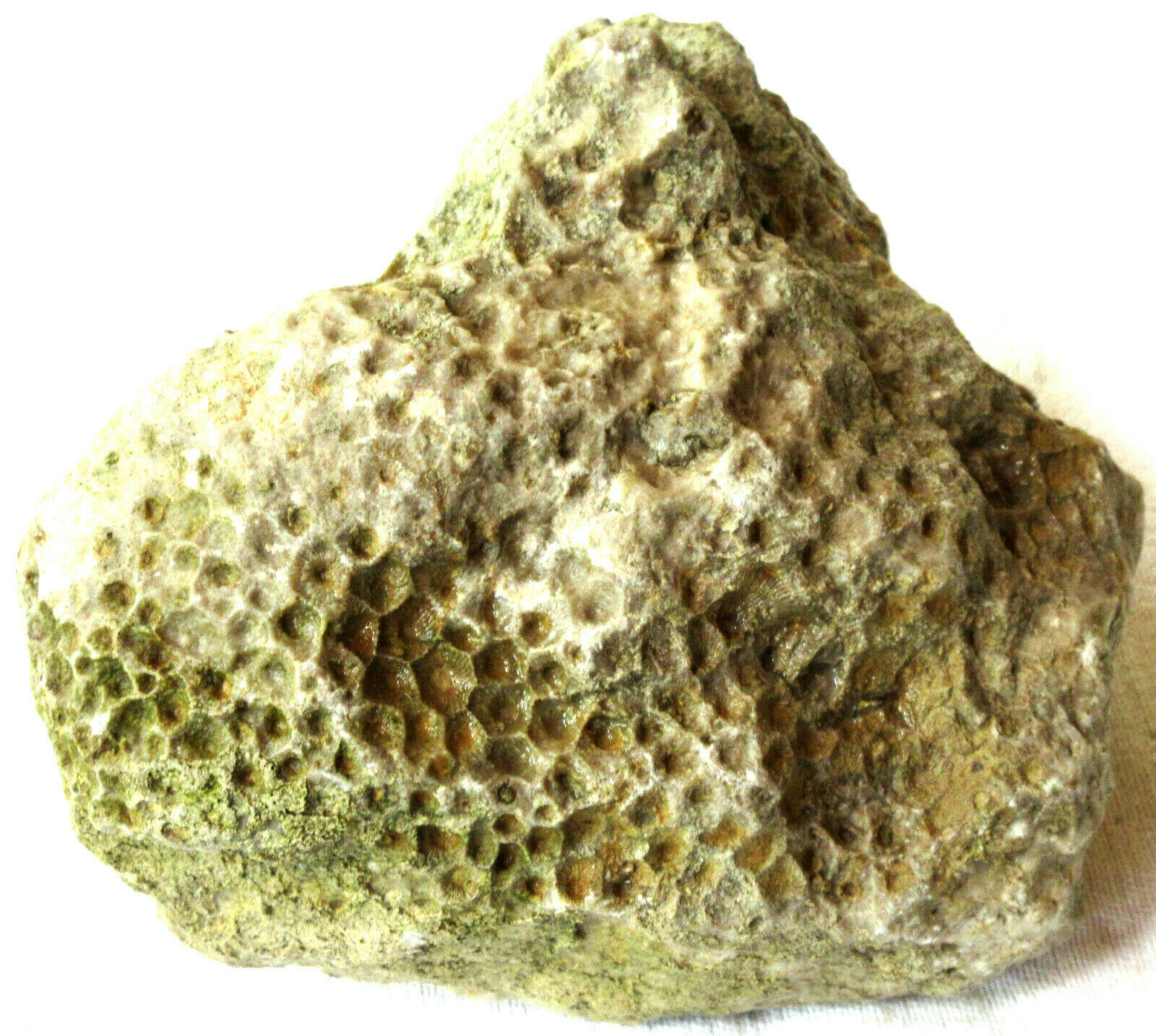-40%
Horn Shape Coral Fossil Kueichouphyllum 44 mm 55.2 gram
$ 6.85
- Description
- Size Guide
Description
A nice horn shape coral fossil specimen of Kueichouphyllum Sinensis China.Specimen is very clear showing good detail.
It measures 44x33x35 mm
Weight: 55.2 gram
***
Horn Shape Coral Fossil - Kueichouphyllum Sinensis
Kingdom: Animalia Phylum: Cnidaria Class: Anthozoa Subclass: Zoantharia Order: Rugosa Scientific name: Kueichouphyllum Sinensis Era: Lower Carboniferous Origin: Guizhou Province, China
Selltotheworld
From all around the world
Horn Shape Coral Fossil Kueichouphyllum 44 mm 55.2 gram
A nice horn shape
coral fossil
specimen of
Kueichouphyllum Sinensis
China.
Specimen is very clear showing good detail.
It measures 44x33x35 mm
Weight: 55.2 gram
***
Horn Shape Coral Fossil -
Kueichouphyllum Sinensis
Kingdom: Animalia
Phylum: Cnidaria
Class: Anthozoa
Subclass: Zoantharia
Order: Rugosa
Scientific name: Kueichouphyllum Sinensis
Era: Lower Carboniferous
Origin: Guizhou Province, China
The Rugosa, or horn corals, were an order of cnidaria (corals) which became entirely extinct by the end of the Permian period, about 250 million years ago. They are thought to have captured prey using stinging tentacles that sprouted from the tip of the "horn". Fossil horn corals are known from many locations worldwide, and some types show colorful radial patterns inside, and are cut for use in jewelry.
Horn corals are the most common type of fossil with a horn shape. If you can see inside the cup, corals will have grooves or lines radiating out from the axis. They are generally less than 3 or 4 centimeters in width, but some grew to lengths of more than a meter. Large horn corals are most common in Devonian strata.
Corals are simple animals that secrete skeletons made of calcium carbonate. They are close relatives of sea anemones and jellyfish and are the main reef builders in modern oceans. Corals can be either colonial or solitary.
As fossils, corals are found worldwide in sedimentary rocks. Based on these fossils, we know that the corals began their long evolutionary history in the Middle Cambrian, over 510 million years ago.
Corals are simple animals, characterized by their radial symmetry and lack of well-developed organs. The polyp, the soft part of the coral, is essentially a small digestive sack made up of an inner and outer wall, separated by a gelatinous layer (see diagram). The mouth, surrounded by stinging tentacles, forms an opening through which food enters and waste products are expelled. The hard external skeleton is secreted by the polyp's outer wall. These calcium carbonate structures are the part of the animal most likely to be preserved as a fossil.
Item Specifics
Country/Region of Manufacture :
China
Country of Manufacture :
China
Modified Item :
No
Payment
By Paypal
Shipping
Free shipping cost.
We send the goods to USA, Canada, UK, Australia, New Zealand, EU countries and some other European and Asian countries by E-express, a kind of fast postal service by Hong Kong Post. It usually takes about 6 to 10 working days for delivery.
We send the goods to other countries by registered airmail and will take about 8 to 14 working days for delivery.
Returns
Returns: We accept returns with any reason in 30 days.
Contact Us
We will answer buyer messages within 24 hours during working days.
Selltotheworld
From all around the world
DESCRIPTION
PAYMENT
SHIPPING
RETURN POLICY
CONTACT US
Horn Shape Coral Fossil Kueichouphyllum 44 mm 55.2 gram
A nice horn shape
coral fossil
specimen of
Kueichouphyllum Sinensis
China.
Specimen is very clear showing good detail.
It measures 44x33x35 mm
Weight: 55.2 gram
***
Horn Shape Coral Fossil -
Kueichouphyllum Sinensis
Kingdom: Animalia
Phylum: Cnidaria
Class: Anthozoa
Subclass: Zoantharia
Order: Rugosa
Scientific name: Kueichouphyllum Sinensis
Era: Lower Carboniferous
Origin: Guizhou Province, China
The Rugosa, or horn corals, were an order of cnidaria (corals) which became entirely extinct by the end of the Permian period, about 250 million years ago. They are thought to have captured prey using stinging tentacles that sprouted from the tip of the "horn". Fossil horn corals are known from many locations worldwide, and some types show colorful radial patterns inside, and are cut for use in jewelry.
Horn corals are the most common type of fossil with a horn shape. If you can see inside the cup, corals will have grooves or lines radiating out from the axis. They are generally less than 3 or 4 centimeters in width, but some grew to lengths of more than a meter. Large horn corals are most common in Devonian strata.
Corals are simple animals that secrete skeletons made of calcium carbonate. They are close relatives of sea anemones and jellyfish and are the main reef builders in modern oceans. Corals can be either colonial or solitary.
As fossils, corals are found worldwide in sedimentary rocks. Based on these fossils, we know that the corals began their long evolutionary history in the Middle Cambrian, over 510 million years ago.
Corals are simple animals, characterized by their radial symmetry and lack of well-developed organs. The polyp, the soft part of the coral, is essentially a small digestive sack made up of an inner and outer wall, separated by a gelatinous layer (see diagram). The mouth, surrounded by stinging tentacles, forms an opening through which food enters and waste products are expelled. The hard external skeleton is secreted by the polyp's outer wall. These calcium carbonate structures are the part of the animal most likely to be preserved as a fossil.
Item Specifics
Country/Region of Manufacture :
China
Country of Manufacture :
China
Modified Item :
No
Payment
By Paypal
Shipping
Free shipping cost.
We send the goods to USA, Canada, UK, Australia, New Zealand, EU countries and some other European and Asian countries by E-express, a kind of fast postal service by Hong Kong Post. It usually takes about 6 to 10 working days for delivery.
We send the goods to other countries by registered airmail and will take about 8 to 14 working days for delivery.
Returns
Returns: We accept returns with any reason in 30 days.
Contact Us
We will answer buyer messages within 24 hours during working days.
All right reserved.
Shop Category
Store Home
Fossils
◈ Insects
◈ Plants
◈ Trilobite
◈ Sea animals
Tektite
◈ Loose lots
◈ Single stone
◈ Silver wired pendant
◈ Tiktite hanger
Lapis Lazuli
▷ Polished stones
♢ Loose lots
♢ Single stones
▷ Rough stones
♢ Loose lots
♢ Single stone
◈ Craft items
Turquoise
◈ Natural turquoise
◈ Turquoise substitutes
Stone carving
Rough Stone & mineral
◈ Single piece
◈ Loose lots
Polished Stone & mineral
◈ Single piece
◈ Loose lots
Rough ruby & sapphire
◈ Ruby
◈ Sapphire
Star Ruby & Sapphire
◈ Star Ruby - Opaque
◈ Star Ruby - Transparent
◈ Blue Star Sapphire
◈ Star Sapphire - other colors
Animal specimen items
◈ Life cycle
◈ Collection set
◈ Key ring
◈ Bracelet or bangle
◈ Necklace or pendant
◈ Magnet
◈ Ring
◈ Hanger
◈ Cabochon
◈ Sphere, ball
◈ Laminated specimen
◈ Computer mouse
◈ Stapler
◈ Pen
◈ Bottle Opener
◈ Dome paperweight
◈ Earring
◈ Skeleton
◈ Fish
▷ Single specimens
♢ Spider
♢ Scorpion
♢ Beetle
♢ Marine animal
♢ Bug
♢ Bee, wasp, hornet
♢ Other insects
♢ Bat
♢ Other animal
▷ Butterfly
♢ Butterfly paperweight
♢ Laminated butterfly
Plant specimen
◈ Flower
◈ Leaf
◈ Life Cycle
◈ Collection Set
◈ Laminated items
◈ Seed or root
Stone, mineral, fossil box set
Jewelry crafts
Paper cuts
◈ Small set
Other
Hot Item
Chinese Water Snake Skeleton in 110x45x18 mm Block Education Animal Specimen
USD 24.00
Spotted Lanternfly Cicada Life Cycle Simplified Set Real Specimen Learning Aid
USD 15.00
Black Indochinite Tektite Stone 10 pieces Plastic Box Set Natural Specimen Kit
USD 16.00
10 Mohs Scale Stone Set clear plastic box Learning Real Specimen Kit
USD 18.00
Insect Cabochon Golden Scorpion Oval 18x25 mm on black bottom 5 pieces Lot
USD 17.00
Picture
New List Item
Turquoise Stone Round 18x18 mm Flat Cabochon 162 Carat 12 pieces 32.4 gram
USD 38.99
Afghanistan Clear Quartz Crystal Stone 51 to 100 gram Size Pieces 0.3 Kg Lot
USD 24.99
Turquoise Stone Round 20x20 mm Flat Cabochon 208.5 Carat 12 pieces 41.7 gram
USD 47.99
Turquoise Stone Round 25x25 mm Flat Cabochon 180.5 Carat 6 pieces 36.1 gram
USD 41.99
Blue Star Sapphire Pear 12x8 mm Cabochon 6 Rayed Lab-created Opaque 1 pc Lot
USD 15.99
Custom Item
